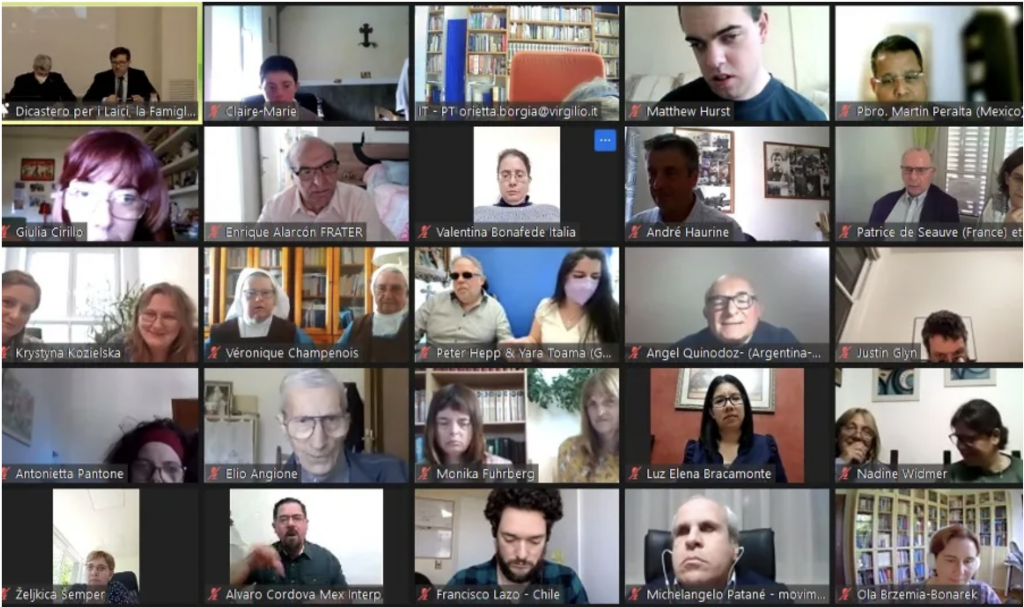The Vatican hosted a virtual listening session with Catholics with disabilities on Thursday as part of the Synod on Synodality process.
People from more than 20 countries participated in the video call hosted by the Vatican Dicastery for Laity, Family, and Life on May 19, with some expressing concerns about experiences of discrimination and exclusion.
A participant from France with Down syndrome shared on the call: “At birth, I could have been aborted. I am happy to live.”
“I love everyone and I thank God for creating me,” she added, according to the dicastery.
Other participants from Mexico, Liberia, Ukraine, and other countries also took part in the discussion of some of the synod’s preparatory questions, including: “How are we walking with Jesus and our brothers and sisters to proclaim Him? For the future, what is the Spirit asking our Church to grow in our journey with Jesus and with our brothers and sisters to proclaim Him?”
Accommodations were made so that people with sensory, physical, or cognitive disabilities could express themselves in their own languages, including sign language.
Father Alexandre Awi Mello, the secretary of the dicastery, said that one of the challenges posed by the global synodal process is to “overcome any prejudice of those who believe that those who have difficulties in expressing themselves do not have a thought of their own, nor anything interesting to communicate.”
Participants in a video call hosted by the Vatican Dicastery for Laity, Family, and Life on May 19, 2022. Dicastery for Laity, Family, and Life Flickr photostream.
According to the Vatican dicastery, the 30 participants in the video call were invited to offer further contributions to a document in the coming months that will be delivered to the General Secretariat of the Synod of Bishops as part of the synodal process.
Cardinal Mario Grech, the secretary general of the Synod of Bishops, spoke to the participants at the beginning of the call.
“I’m in debt to people with disabilities. One of them led me on the path of a priestly vocation,” Grech said.
“If the face of the disabled brother or sister is discarded, it is the Church that becomes disabled,” he said.

